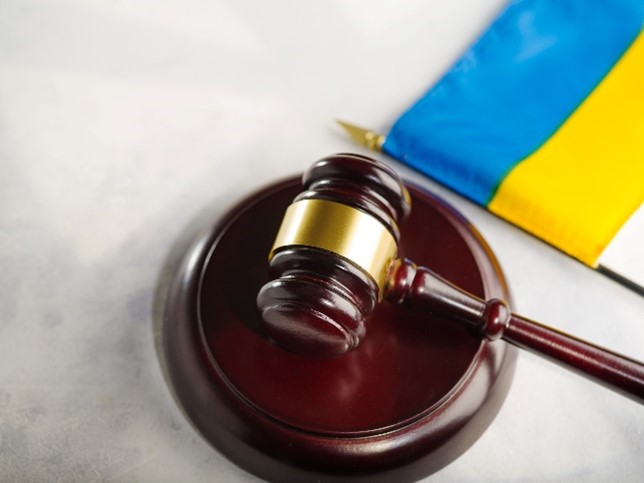
On 16 March 2022, the International Court of Justice (“ICJ” or “Court”) granted Ukraine’s request for provisional measures against the Russian Federation (“Russia”), ordering Russia immediately to suspend its military operations in the territory of Ukraine. The Court’s ruling stems from Ukraine’s 26 February institution of proceedings against Russia concerning a dispute relating to the interpretation, application and fulfilment of the 1948 Convention on the Prevention and Punishment of the Crime of Genocide (“Genocide Convention” or “Convention”). Oral hearings, which Russia did not attend, took place on 7 March.
On 16 March 2022, the Council of Europe (“Council”) also announced the expulsion of Russia from the Council, after the Parliamentary Assembly of the Council unanimously adopted an opinion which considered that Russia could no longer be a member due to its “war of aggression” against Ukraine.
[Read More]
In its application to the ICJ, Ukraine contended that the ICJ had jurisdiction over the case pursuant to Article IX of the Genocide Convention, as the parties have a dispute regarding the occurrence of genocide in the Luhansk and Donetsk regions, and was thereby able to determine whether Russia’s unilateral allegation of genocide serves as a lawful basis for military action to prevent and punish genocide pursuant to Article I of the Genocide Convention. Although it did not participate in proceedings, through a communication to the Court on 7 March, Russia denied the ICJ’s jurisdiction, arguing that it had taken military action pursuant to Article 51 of the United Nations Charter (self-defence) and customary international law.
The Court found that it had prima facie jurisdiction over the matter, reasoning that Russia’s public statements and the parties’ exchanges in multilateral settings “referred to the subject-matter of the Genocide Convention in a sufficiently clear way” to bring Russia’s actions within the scope of the Genocide Convention “ratione materiae”. Further, the Court noted that Russia’s invocation of the United Nations Charter as the basis for its “special military operation” was not determinative of the Court’s jurisdiction, as certain acts and omissions of States “may give rise to a dispute that falls within the ambit of more than one treaty.”
The ICJ’s practice under Article 41 of its Statute – namely, the ability to indicate provisional measures – has been to exercise this power only if it is satisfied that the “rights asserted by the party requesting such measures are at least plausible” and that a “link [] exist[s] between the rights… and the provisional measures being requested”. The power is also only exercised if there is a “real and imminent risk that irreparable prejudice will be caused to the rights claimed”.
The Court held that Ukraine had a “plausible right not to be subjected to military operations by the Russian Federation for the purpose of preventing and punishing an alleged genocide in the territory of Ukraine”. It observed that it did not have evidence of the alleged genocide before it, and in any event, it was “doubtful” that the Genocide Convention empowers a State party’s unilateral use of force in another State’s territory to prevent or punish an alleged genocide.
In view of the risk to the “extremely vulnerable” civilian population and the death and destruction already caused by the “special military operation”, the Court concluded there was risk of irreparable prejudice to Ukraine’s claimed rights sufficient for the indication of provisional measures.
In a 13-2 vote, the Court consequently instructed Russia to (i) “immediately suspend the military operations that it commenced on 24 February 2022 in the territory of Ukraine” and (ii) “ensure that any military or irregular armed united which may be directed or supported by it… take no steps in furtherance of the military operations”. Additionally, in a unanimous vote, the Court instructed both parties to “refrain from any action which might aggravate or extend the dispute… or make it more difficult to resolve”.
Vice-President Kirill Gevorgian of Russia and Judge Xue Hanqin of China dissented on the first two provisional measures. Vice-President Gevorgian opined that the Court does not have jurisdiction to entertain the case as the Genocide Convention did not cover issues relating to the use of force. Judge Xue reasoned that the rights and obligations claimed by Ukraine under the Genocide Convention were not plausible, as the core of its claim relates to the legality or otherwise of Russia’s use of force in cases of genocide under general international law. Both judges nevertheless voted in favour of the third provisional measure, which calls on both parties to refrain from aggravating the dispute.
The ICJ’s Order Indicating Provisional Measures is available here.
The Declarations and Opinions of the judges are available here.
The Council of Europe’s announcement of Russia’s expulsion and the Opinion of the Parliamentary Assembly are available here.
Fietta’s previous updates on the legal consequences arising from the Ukraine-Russia conflict are available here and here.
